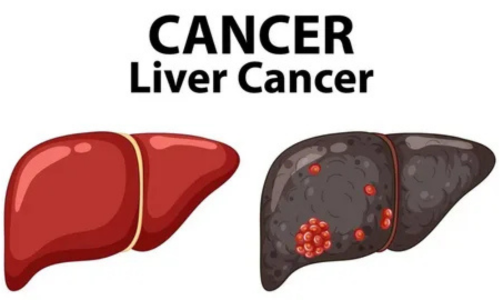
Liver cancer is a disease characterized by the presence of malignant cells in the tissues of the liver. It can originate in the liver itself (primary liver cancer) or spread from other parts of the body (secondary or metastatic liver cancer). The most common type of primary liver cancer is hepatocellular carcinoma, which arises from the main type of liver cells called hepatocytes.
Symptoms
- Unexplained weight loss
- Loss of appetite
- Upper abdominal pain or discomfort
- Nausea and vomiting
- General weakness and fatigue
- Swelling or fluid build-up in the abdomen (ascites)
- Jaundice (yellowing of the skin and eyes)
- Itching
Risk Factors
- Chronic infection with hepatitis B or C
- Cirrhosis (scarring of the liver)
- Excessive alcohol consumption
- Nonalcoholic fatty liver disease
- Certain inherited liver diseases
- Diabetes
- Obesity
Diagnosis
- Blood tests to check liver function
- Imaging tests such as ultrasound, CT scan, or MRI
- Biopsy to obtain a tissue sample
- Alpha-fetoprotein (AFP) blood test
Treatment
- Surgery (partial hepatectomy or liver transplant)
- Localized treatments (radiofrequency ablation, cryoablation, or embolization)
- Radiation therapy
- Targeted drug therapy
- Immunotherapy
- Chemotherapy
Prevention
- Vaccination against hepatitis B
- Regular screening for hepatitis B and C
- Maintaining a healthy weight
- Limiting alcohol consumption
- Managing underlying health conditions such as diabetes
If you experience any symptoms or have risk factors associated with liver cancer, it is essential to seek medical advice for proper evaluation and management.
Leave a Reply